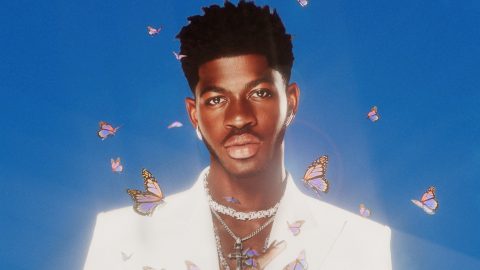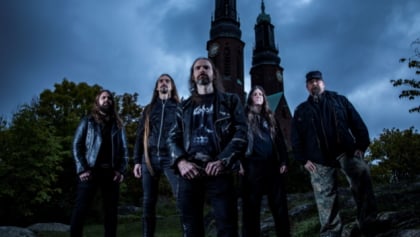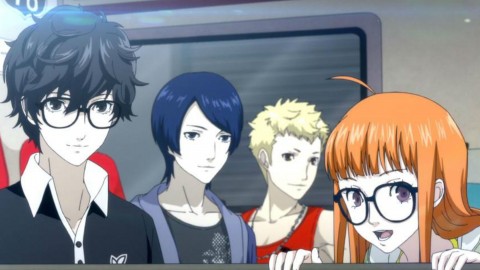The Lowdown: Hopefully, we’re past the cultural point of wondering how BTS became the biggest pop group in the world and ready to look more closely at why they are so deserving of that title and what it means to be in that position. These are some of the ideas the group themselves are working out on their latest full-length release, Map of the Soul: 7. Following last year’s EP, Map of the Soul: Persona, the group continue to borrow their album titles from psychoanalyst Carl Jung’s theories of the self. This time around, the group are incorporating ideas of the Ego and Shadow throughout the album. The first five songs before “Interlude : Shadow” are tracks from Persona, but the 15 songs that follow are new to fans, spanning the wide variety of genres and influences — from trap and R&B to pop ballads and hip-hop — that the group have become known for.
(Buy: Tickets to Upcoming BTS Shows)
The Good: BTS’ lyrics remain one of the strongest points of their work. Official lyric translations are not released, but thanks to fan translators (like doolsetbangtan and doyou_bangtan), we can get a nuanced interpretation of the boys’ words. On songs like “Black Swan”, a clear album highlight, the group question what it means to be an artist. According to a press release, “Black Swan” was inspired by the Martha Graham quote: “A dancer dies twice — once when they stop dancing, and this first death is the more painful.” The idea of a first death is directly referenced in the lyrics, in which BTS grapple with the potential that their passion for music and performing could one day disappear. The song itself is a beautiful blend of trap drumbeats and strings, rap and vocals, that creates an atmosphere of anxiety before you even read the lyrics.
The fear of losing your passion is relatable to any creative, but these ideas are directed at BTS’ personal experiences on “Interlude : Shadow”. The song is a solo track from rapper Suga, who reckons with getting everything he wished for and worrying he’s flown too high as he looks down at his shadow. In the hook, he pleads in English: “Please don’t let me shine/ Don’t let me down/ Don’t let me fly.” There’s no satisfying resolution to his dilemma, but after a thrilling tempo change in the song’s final act, he decides he has to accept that he and his shadow are both parts of him.
The album isn’t all inner demons, though: some of the best lyrical moments come from brighter places. “Friends” is a bouncy duet from Jimin and V that could thaw even the coldest heart as the two sing about their long friendship: “I’m from the moon, you’re from the star,” Jimin remarks before continuing, “Hello, my alien,” to V, a friend who he doesn’t always understand but considers his “soulmate” as the song sweetly concludes. Other album highlights include “UGH!” from the group’s rappers, which recalls the fast-paced and blunt “Cypher” tracks of their previous albums. These songs are fueled by anger, but on “UGH!”, the guys are angry at an angry world. Over the sounds of gunshots that accompanied many early BTS tracks, RM, Suga, and J-Hope direct their rage most likely towards “numb” and “desensitized” Internet trolls who use their unjustified anger to justify their cruel actions.
It’s a totally different experience from listening to “Outro : Ego”, J-Hope’s solo offering, which feels like your heart is being shocked with a defibrillator of joy. If all the color and energy in the world could be bottled up and set to a soundtrack of horns, it would be this song. The variety of ideas in their lyrics and wide scope of genres may make the album seem potentially messy, but BTS have always been at their best when they’re showing off different sides of themselves. On this album, they continue to show new ones that fans may not have even known about.
The Bad: Collaboration often serves BTS well, but there are some instances on the album where the group find themselves in what we’ll call the “Make It Right” dilemma, after the Ed Sheeran-penned song featured on Persona and again here on 7. The song gets a bit lost in the Sheeran-fluence and doesn’t end up making much of a statement for BTS, when the group are at their best blending their influences and making something distinctly their own.
Jimin gives a truly stunning vocal performance on “Filter”, but the accompaniment to the track, written by producer Tom Wiklund, are the kind of Latin guitars that the likes of Shawn Mendes have co-opted and used on every single. It’s a fun song, but it feels like it’s missing something unique to BTS. Lead single “ON” has two versions on the album, one with and one without a feature from Sia. She sounds great, but her feature doesn’t do much to augment the song. On the other hand, “Louder Than Bombs”, penned by Troye Sivan and Allie X, is an example of the way collaboration can be innovative and exciting. If anything, BTS prove that they can successfully tackle any genre, even if they’re better served by mixing influences and pushing genres forward.
The Verdict: BTS are both the world’s biggest and most interesting act in pop music right now: 7 solidifies this position and smartly looks towards the future. Their cultural impact is undeniable, and their work continues to push forward conversations about genre, language, and much more. There’s no telling what BTS will do next, but that’s what’s so compelling.
Essential Tracks: “Interlude : Shadow”, “Black Swan”, and “UGH!”
Album Review: BTS Justify the Hype on the Reflective Map of the Soul: 7
Matt Melis




